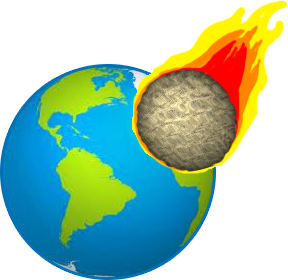Since the mortgage crisis of 2008, all the pundits are looking for the next bubble, probably because most of them are embarrassed that they failed to predict either the dotcom bubble or the housing crash. That’s why I’m wary of doom forecasters, because the disaster that’s on the way is rarely the one they’re predicting.
So I admit I was skeptical of a bubble-forecasting Guardian article brought to my attention by my friend and fellow writer, Stephen Kotowych. I gave it a read though because he and I spent a couple of years critiquing each others short stories in our writers group, the Fledglings, established by author Robert J. Sawyer. You get to know someone after reading a dozen of their stories and, even more telling, hearing their critiques of your own. I trust Stephen’s judgment.
In a nut shell the Guardian article tries to compare the ePublishing craze to a financial industry bubble, but the author, Ewan Morrison, has to jump through some pretty tenuous hoops to explain why prices aren’t increasing, which is standard for a bubble–think house prices or dotcom stock prices. He states the the actual devices–eReaders, iPads, are the price increase in this analogy, although all of these have been dropping in price. I assume he means the upfront cost to the consumer who could buy books without an eReader before, but then the article is supposed to be about self-publishers.
Yet, there is some validity to his contention that we are in a self-publishing bubble, one where people who are not authors believe they can make a million bucks on Amazon. I know of one example: a man who’d never even tried to write a book before in his life, but suddenly self-published a short non-fiction self-help book. I think he truly wants to help people, but I also believe that he expected to rake in lots of cash doing it. His book sales are non-existent if Amazon’s bestseller ranking can be believed, and I predict he will never write another eBook. But I’m willing to bet that he bought an eBook, probably with a title like How You Can Make Trillions and Trillions of Dollars and End World Hunger by Self-Publishing an eBook. Hey, maybe I should write and publish that!
Sadly, I saw this gold rush coming but I was too late. I first considered self-publishing in September of 2009, and I would have beaten the tsunami of crap, but I waited until the spring of 2010, and by that time Amanda Hocking had taken off. When I read articles about her millions of sales, I knew that every dusty manuscript in a desk drawer would be out there with a quick cover and no editing. What I didn’t predict (and should have) was that every self-styled guru would be out their selling books on how to get rich ePublishing. These are like the guys selling bent shovels and treasure maps to prospectors in the Klondike.
Any writer (or publisher) could have predicted this bubble, because it’s actually been around for a long time. The general public just didn’t know about it. For the last ten years I’ve heard one editor after another, one agent after another, groan and complain about the massive depth of the slush pile. For years people have been sending in manuscripts, certain that they’re the next J.K. Rowlings or John Grisham, hoping to make millions. Publishers should be delighted with ePublishing because the slush pile can now be sorted by readers at 99 cents a pop, sometimes even for free. And ruthlessly sort they do–just check out the one star ratings that some books earn on Amazon.
As for the scammers, they’ll peak this year and fade into the background. Like spam, they’ll always be with us, but people will get very good at recognizing them.
Yes, a lot of people have jumped into self-publishing because they think it’s easy. When they don’t sell and realize that it’s hard work to learn how to write, to promote and to write more, they’ll walk away because these are also the type of people who give up quickly. Wait for the howls of outrage next year when Amazon announces that they’re dumping every self-pubbed title that hasn’t sold in two years. Contrary to popular opinion, server space is not free. Authors like me will still be there because we’re writers and that’s what we do, even if we don’t sell millions.
But where I strongly disagree with the Guardian article is the suggestion that the government should bail out publishers. They deserve a hand out from the tax payer even less than the big banks, and they’ve adapted to new technology about as well as the record companies. In other words, kicking and screaming their way into the 21st century. But unlike the big banks, publishers can easily be replaced by smaller, better publishers without much pain for the average person.
The next few years will see publishers reluctantly adapt, and the self-publishing bubble will burst, but don’t expect the industry to return to pre-eBook days. True self-publishers, like Joe Konrath and Barry Eisler, will still be out there along with many other successful self-publishing authors. They may not be making millions, but they’ll make thousands. In fact, I’m looking forward to the end of the bubble. It’ll be cleansing.


